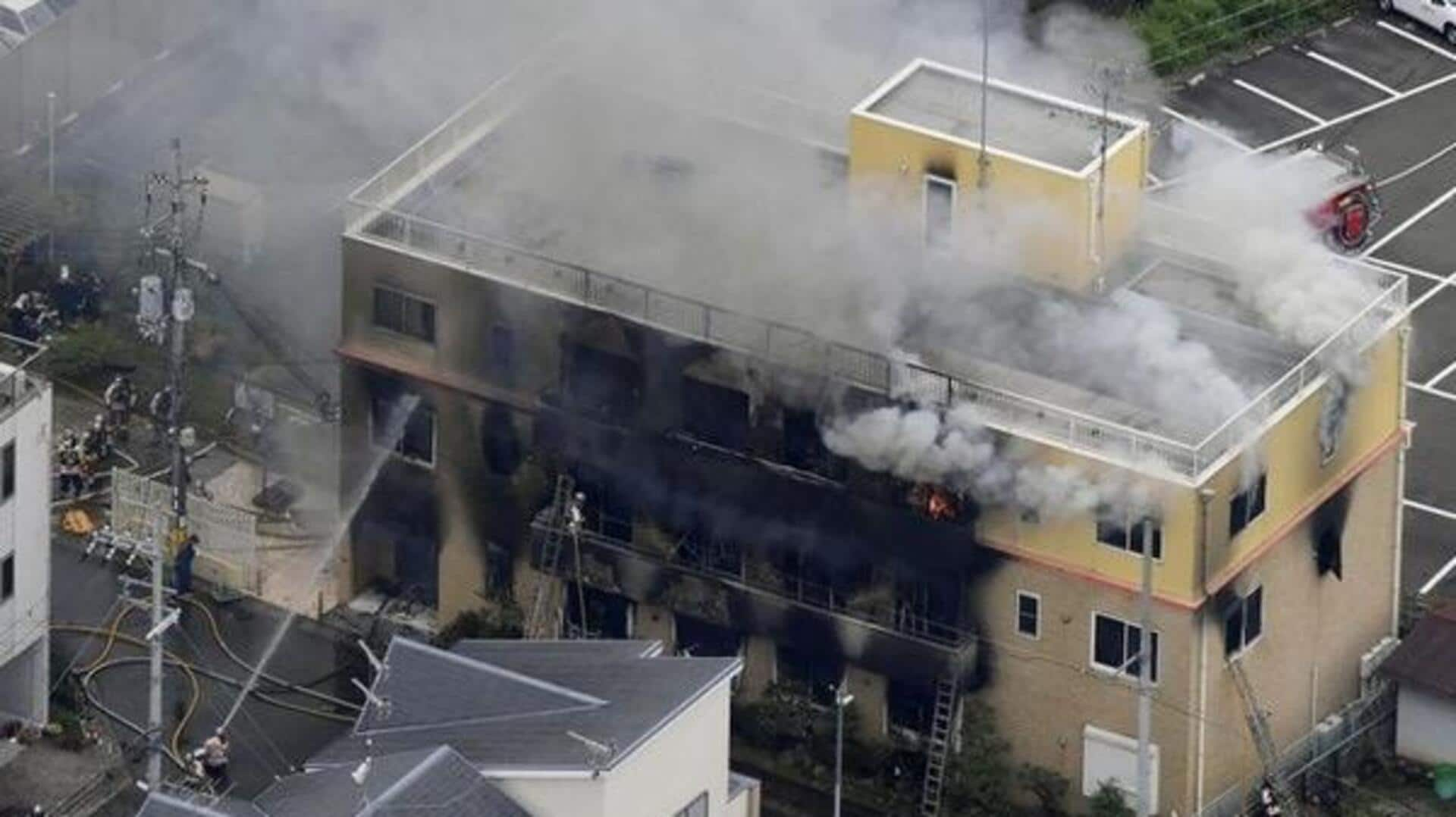
Kyoto Animation studio fire: Japan court sentences arsonist to death
What's the story
A Japan court, on Thursday, sentenced 45-year-old Shinji Aoba to death for the 2019 arson attack on the famous Kyoto Animation studio. The attack, which left 36 people dead, stands as the nation's deadliest mass killing in nearly two decades. Aoba was charged with murder and arson after confessing to police that he believed the studio had plagiarized his work and admitting to using gasoline to start the fire.
Judge's statement
Crime 'truly atrocious and inhumane' judge says in ruling
Dozens were trapped inside a three-story building during a rapid blaze, leading to the death of all employees and injuring at least 32 others. Judge Keisuke Masuda deemed Aoba's crime "truly atrocious and inhumane," emphasizing the severity and tragic nature of the victims' deaths. He added, "The horror and pain of the victims who died in Studio 1, which turned into a hell in an instant, or who died afterward, is beyond description."
In court
Aoba mentally ill, claimed defense; fully competent, said prosecution
During a 2019 news conference, police mentioned that Aoba had "unspecified mental health issues." Despite pleading not guilty in the trial that commenced last September, his defense claimed he was mentally ill and not accountable. Prosecutors however called for the death penalty, arguing Aoba was fully competent.
Insights
Aoba could discern right from wrong
According to NHK, the judge determined that Aoba could discern right from wrong at the time of the attack. His capacity for responsibility was "determined to have been neither insane nor mentally incompetent at the time of the crime." The assault on Kyoto Animation left fans around the globe mourning the loss of life and a studio celebrated for creating acclaimed animations such as "Free!," "K-On!," "the Melancholy of Haruhi Suzumiya," and "Violet Evergarden."
Insights
Regret my action: Aoba
In July 2019, Aoba had burst into the studio during a work day, splashing petrol on the ground floor and setting it alight. Later, he had admitted that he regreted his action and did not think that so many people would die. "I feel tremendously sorry and the feeling includes a sense of guilt," he had said. During the incident, Aoba himself had suffered burns to over 90% of his body, as reported by BBC.
Capital punishment
Debate around death penalty for people with mental disabilities
Among industrialized democracies, Japan and certain regions of the United States retain capital punishment. Amnesty International and other human rights organizations argue that international law forbids the imposition of the death penalty on people with mental disabilities. They contend that such executions violate fundamental human rights principles, particularly for vulnerable people who may not fully comprehend their actions.